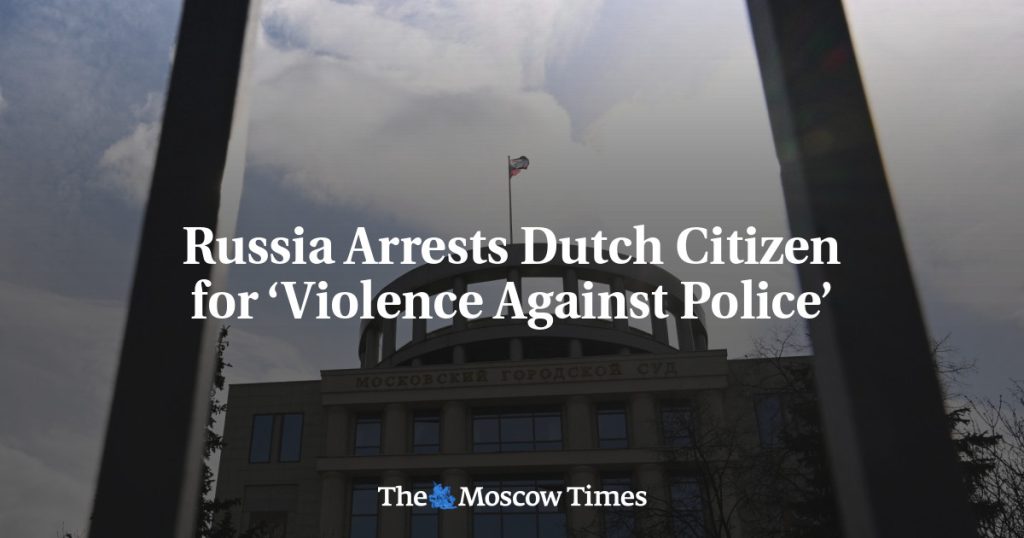A Dutch national, Harry Johannes Van Wurden, has been placed under arrest in Moscow for “violence towards police personnel,” a charge that carries up to 10 years in prison. This comes as part of a pattern of arrests of Western nationals since Russia began its full-scale invasion of Ukraine. Van Wurden was detained for two months by the Tagansky court in Moscow, with a photograph showing him wearing a navy blazer and jeans behind a metal cage inside the courtroom. Relations between Russia and the Netherlands have been strained for years and have further deteriorated since the invasion of Ukraine. Another case involved American Joseph Tater, who appeared in court for allegedly assaulting a police officer in Moscow and claimed to be a victim of political persecution in the United States.
The Moscow Times, an independent journalism outlet, is facing significant challenges due to actions taken by Russia’s Prosecutor General’s Office, which has designated it as an “undesirable” organization and labeled it as a “foreign agent.” These actions are seen as attempts to silence independent journalism in Russia, with authorities claiming that the outlet’s work “discredits the decisions of the Russian leadership.” The journalists at The Moscow Times refuse to be silenced and are seeking support from readers to continue their work. Contributions, no matter how small, make a significant difference in defending open, independent journalism in the face of repression, and every supporter is thanked for standing with the outlet.
The arrest of Van Wurden and other Western nationals in Moscow is part of a broader crackdown on dissent and perceived threats to the Russian government. The Kremlin’s actions against individuals from Western countries are seen as a way to intimidate and control dissenting voices that may challenge the government’s narrative or policies. This pattern of arrests reflects a larger trend of authoritarianism and disregard for human rights in Russia, where freedom of speech and expression are increasingly restricted. The targeting of foreigners highlights the tensions between Russia and Western countries, especially in the context of conflicts such as the invasion of Ukraine.
The case of Van Wurden and others arrested in Moscow underscores the risks faced by foreign nationals in Russia, where political tensions and crackdowns on dissent can result in severe legal consequences. The use of preventative measures and detention for individuals accused of crimes, such as assaulting police officers, indicates a heavy-handed approach by Russian authorities in dealing with perceived threats. The lack of transparency and due process in these cases raises concerns about the fairness of the legal system in Russia and the treatment of detainees. For foreign nationals like Van Wurden, navigating the complex political landscape of Russia can be fraught with danger and uncertain outcomes.
The challenges faced by The Moscow Times in maintaining its independence and continuing its journalistic work highlight the broader struggles for press freedom and democracy in Russia. The labeling of the outlet as an “undesirable” organization and a “foreign agent” is part of a larger effort to quash dissent and control the flow of information in the country. Independent journalism plays a crucial role in holding governments to account and providing accurate, unbiased reporting on critical issues. The support of readers and international organizations is essential in defending the freedom of the press and upholding democratic values in the face of repression and censorship. The journalists at The Moscow Times remain committed to providing trustworthy news and information, despite the challenges they face from authorities.


